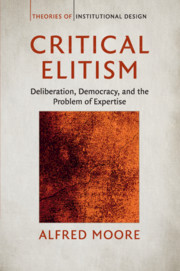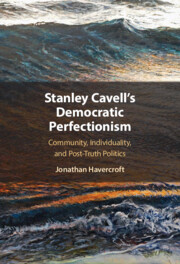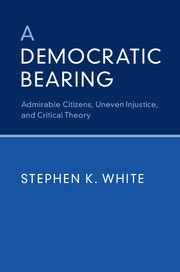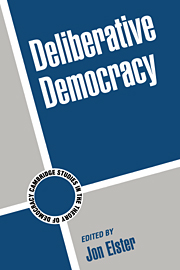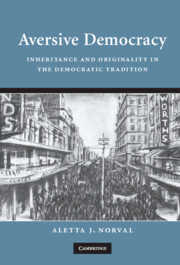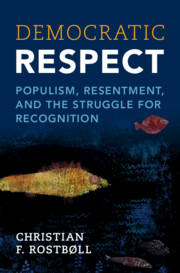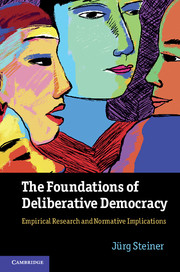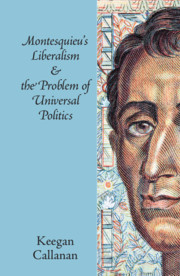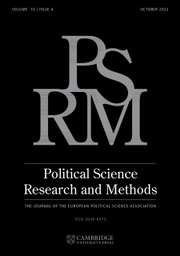Critical Elitism
Deliberation, Democracy, and the Problem of Expertise
Part of Theories of Institutional Design
- Author: Alfred Moore, University of Cambridge
- Date Published: January 2020
- availability: Available
- format: Paperback
- isbn: 9781316646250
Paperback
Other available formats:
Hardback, eBook
Looking for an examination copy?
This title is not currently available for examination. However, if you are interested in the title for your course we can consider offering an examination copy. To register your interest please contact [email protected] providing details of the course you are teaching.
-
Democracies have a problem with expertise. Expert knowledge both mediates and facilitates public apprehension of problems, yet it also threatens to exclude the public from consequential judgments and decisions located in technical domains. This book asks: how can we have inclusion without collapsing the very concept of expertise? How can public judgment be engaged in expert practices in a way that does not reduce to populism? Drawing on deliberative democratic theory and social studies of science, Critical Elitism argues that expert authority depends ultimately on the exercise of public judgment in a context in which there are live possibilities for protest, opposition and scrutiny. This account points to new ways of looking at the role of civil society, expert institutions, and democratic innovations in the constitution of expert authority within democratic systems. Using the example of climate science, Critical Elitism highlights not only the risks but also the benefits of contesting expertise.
Read more- Recognises the value of epistemic divisions of labour but does not treat them as demands for deference to claims that stand outside politics altogether
- Takes an interdisciplinary approach, drawing on deliberative democracy and philosophy and sociology of expertise
- Brings work from science studies into conversation with democratic theory
Reviews & endorsements
'In this illuminating book, Alfred Moore argues persuasively that democracy requires not only active participation, but also reflective judgments about expert authority by those who choose not to participate. Critical Elitism offers a nuanced and important contribution to the study of expertise and democracy.' Mark B. Brown, California State University, Sacramento
Customer reviews
Not yet reviewed
Be the first to review
Review was not posted due to profanity
×Product details
- Date Published: January 2020
- format: Paperback
- isbn: 9781316646250
- length: 223 pages
- dimensions: 230 x 152 x 16 mm
- weight: 0.45kg
- contains: 1 b/w illus.
- availability: Available
Table of Contents
Acknowledgements
Introduction
1. Two faces of epistemic democracy
2. Democracy and problem of expertise
3. Political and epistemic authority
4. The problem of judgment
5. Contestation
6. Consensus
7. Institutional innovations
Conclusion
References
Index.
Sorry, this resource is locked
Please register or sign in to request access. If you are having problems accessing these resources please email [email protected]
Register Sign in» Proceed
You are now leaving the Cambridge University Press website. Your eBook purchase and download will be completed by our partner www.ebooks.com. Please see the permission section of the www.ebooks.com catalogue page for details of the print & copy limits on our eBooks.
Continue ×Are you sure you want to delete your account?
This cannot be undone.
Thank you for your feedback which will help us improve our service.
If you requested a response, we will make sure to get back to you shortly.
×
